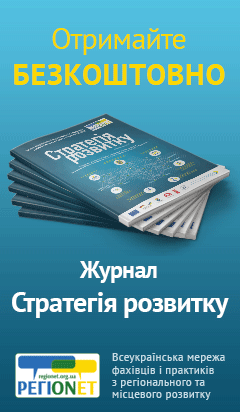Kharkiv Electrical Industrial Company, Limited Liability Company
- Address:60 Nauky ave., c. Kharkiv, 61072, Ukraine
- Telephone:+38(057) 340-49-07, 340-55-55, 758-92-25
- Web-site:
Director - Serhiy M. Shalyapin
The main types of activity are:
- design and manufacture of equipment for ecologically clean decontamination of sewage water by means of ultraviolet radiation with the capacity of 1 to 100 m3/year and over;
- manufacture of ultraviolet equipment for food industry and medicine;
- production of bactericidal irradiators.
The secondary types of activity are:
- design and manufacture of exclusive equipment for outdoor, office and decorative illumination;
- manufacturing industrial and household air-ionizing units.
The most effective and economical decontamination method which does not change the chemical composition of water and its taste properties is the one based on the bactericidal and anti-viral effect of short-wave ultraviolet (UV) radiation.
The main advantages of the method for water decontamination with UV radiation include:
- a high efficiency in eliminating the most harmful stomach infections such as: viral hepatitis, gastroenteritis, cholera, typhus, dysentery;
- the danger of formation of toxins and mutagenous compounds is considerably reduced. Water decontamination with bactericidal UV radiation does not require the use of highly toxic chlorine or expensive ozone which produce a harmful effect on the human health and the environment; it is connected with a direct influence of UV radiation on malignant microorganisms which are found in water;
- an instant bactericidal effect;
- a long duration of the bactericidal phase (water treated with UV radiation preserves its biological purity for many days) and the absence of re-activation of microorganisms;
- low decontamination cost (the cost of decontamination of 1000 m3 is USD 2.6-3.0);
- simple operation;
- The cumulative effect of short-wave UV radiation allows performing a multi-staged and repeated decontamination with radiation at different stages of water treatment, transport and distribution.
- Water decontaminated with short-wave UV radiation is absolutely harmless for the human health.
The devices and units of the “Vodohray” series are specially designed for:
- decontamination of potable water in systems of individual and centralized household water supply;
- decontamination of water used for the production of liqueurs, vodka, beer and soft drinks;
- decontamination of water in swimming pools.
The main types of activity are:
- design and manufacture of equipment for ecologically clean decontamination of sewage water by means of ultraviolet radiation with the capacity of 1 to 100 m3/year and over;
- manufacture of ultraviolet equipment for food industry and medicine;
- production of bactericidal irradiators.
The secondary types of activity are:
- design and manufacture of exclusive equipment for outdoor, office and decorative illumination;
- manufacturing industrial and household air-ionizing units.
The most effective and economical decontamination method which does not change the chemical composition of water and its taste properties is the one based on the bactericidal and anti-viral effect of short-wave ultraviolet (UV) radiation.
The main advantages of the method for water decontamination with UV radiation include:
- a high efficiency in eliminating the most harmful stomach infections such as: viral hepatitis, gastroenteritis, cholera, typhus, dysentery;
- the danger of formation of toxins and mutagenous compounds is considerably reduced. Water decontamination with bactericidal UV radiation does not require the use of highly toxic chlorine or expensive ozone which produce a harmful effect on the human health and the environment; it is connected with a direct influence of UV radiation on malignant microorganisms which are found in water;
- an instant bactericidal effect;
- a long duration of the bactericidal phase (water treated with UV radiation preserves its biological purity for many days) and the absence of re-activation of microorganisms;
- low decontamination cost (the cost of decontamination of 1000 m3 is USD 2.6-3.0);
- simple operation;
- The cumulative effect of short-wave UV radiation allows performing a multi-staged and repeated decontamination with radiation at different stages of water treatment, transport and distribution.
- Water decontaminated with short-wave UV radiation is absolutely harmless for the human health.
The devices and units of the “Vodohray” series are specially designed for:
- decontamination of potable water in systems of individual and centralized household water supply;
- decontamination of water used for the production of liqueurs, vodka, beer and soft drinks;
- decontamination of water in swimming pools.
Company information
Go to the company description »
CRM Reviews
ООО "Фойт Индастриэл Сервисиз"
Компания Фойт Индастриэл Сервисиз является крупнейшим поставщиком услуг промышленного аутсорсинга, прежде всего для предприятий автомобилестроительной отрасли. Интенсивное развитие этой отрасли в России потребовало от нас активизации и систематизации продаж, в чем нам успешно помогает программный...
New companies
- KRATKI.UA Company
- Volkswagen-Expert Company
- DorBud Company
- Gruner Lviv Boutique Hotel
- SVIY SKLAD Company
- Ribas Karpaty Hotel
- Besttranslated Company
- Lemanso Company
- Accordo Ukraine Company
- Pulse family clinic
- Accordo Internazionale Company
- BARLLY GROUP LLC
- UTEM-Technological Pipelines LLC
- Litiz LLC
- TECHCOMPLECT LLC
- Bontiak Hotel
- Ferenc Hotel
- SviTaho Company
- DESIGN INSTITUTE OF TRANSPORT INFRASTRUCTURE LTD
- TMM-ENERGOBUD MANAGEMENT LTD






